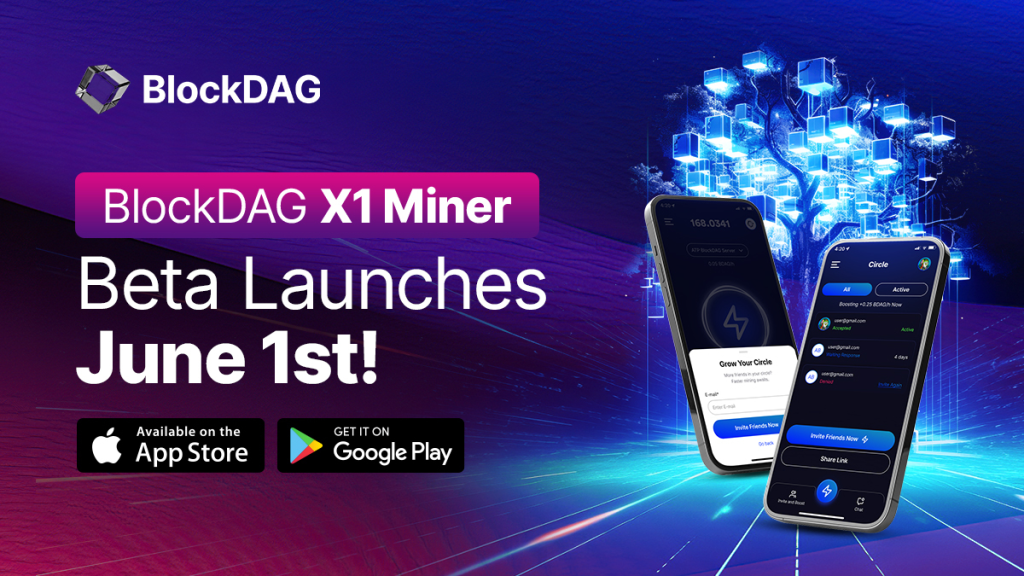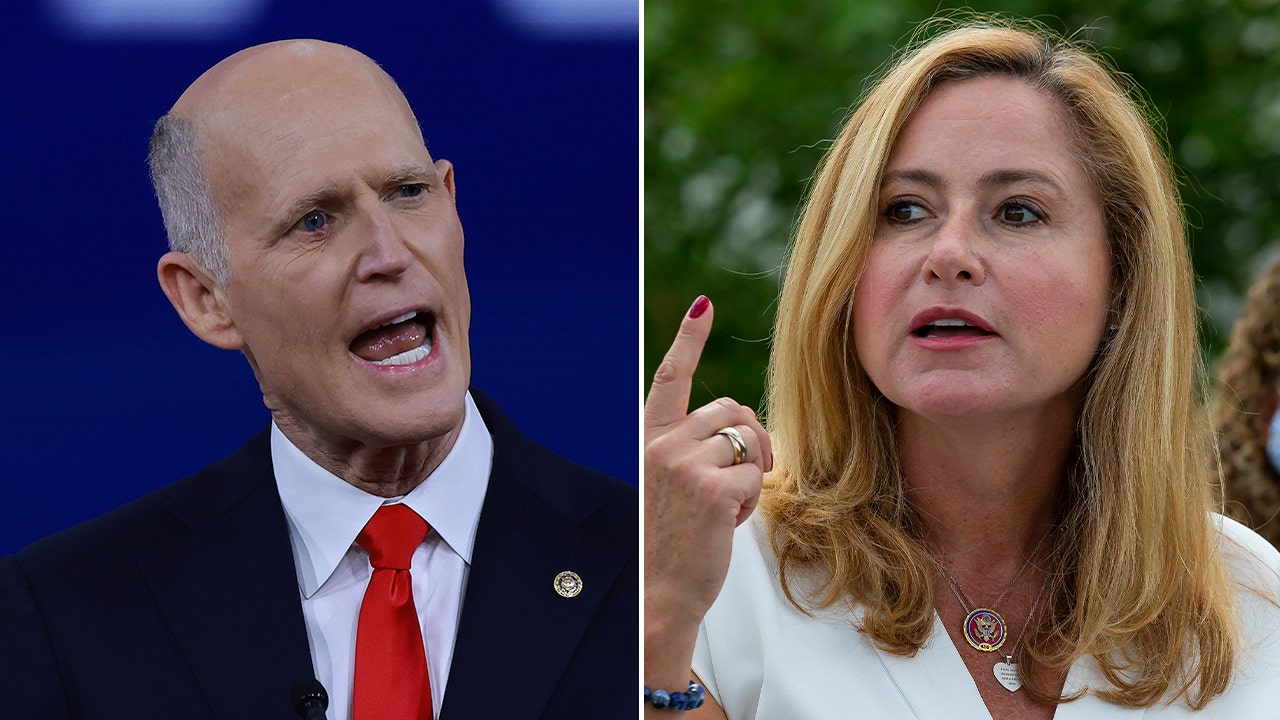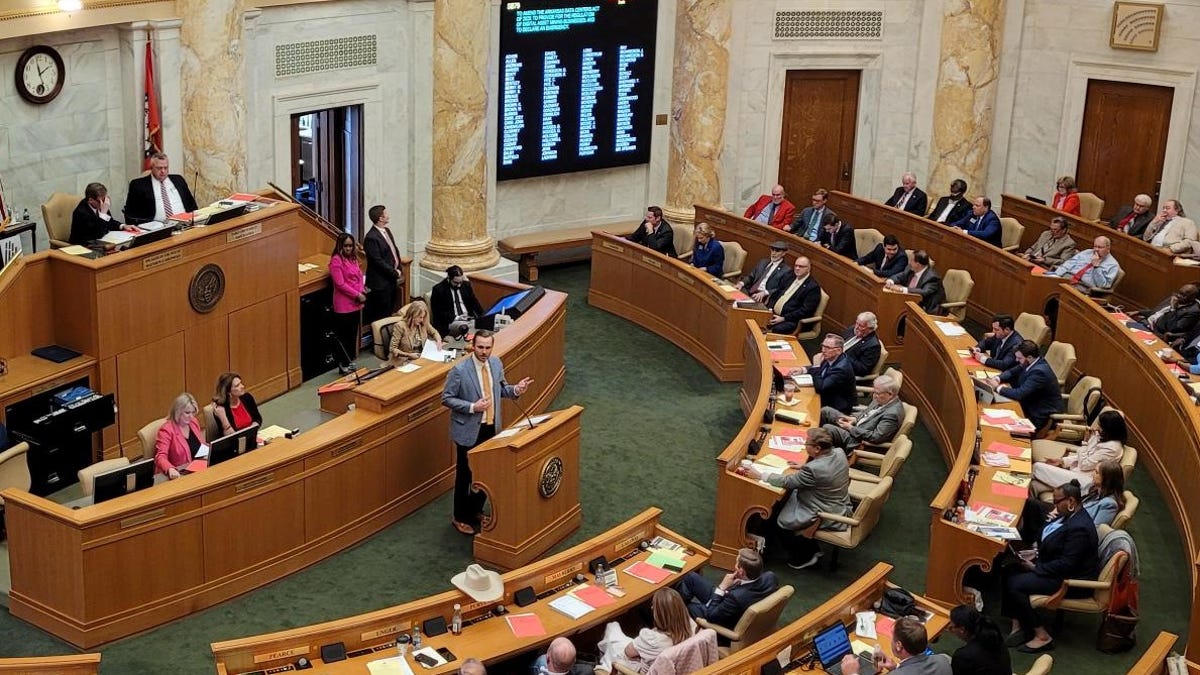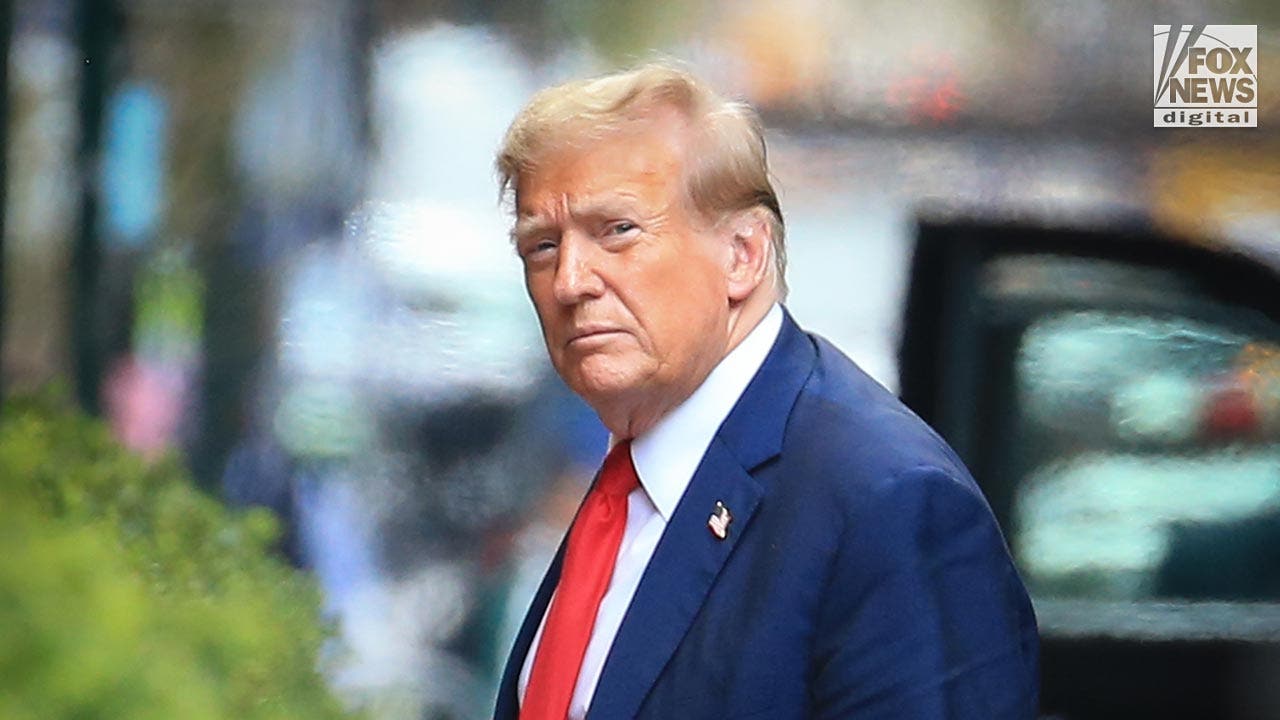Crypto
WTO member countries need to discuss crypto currency under e-commerce negotiations: GTRI – Times of India

It added that the debate should pivot on whether exchanges of crypto-currency fall under ‘electronic transmissions’ in the e-commerce scope.
“With the multifaceted dynamics of the e-commerce landscape, the outcomes of the ongoing WTO negotiations hold significant implications for global digital trade.
“The inclusion or exclusion of crypto-currencies and the diverse positions of influential nations will shape the future of international e-commerce policies,” GTRI Co-Founder Ajay Srivastava said.
At present, the WTO members are holding two-pronged e-commerce negotiations (joint initiative and e-commerce moratorium) but the crypto currency so far is not part of any of the talks.
Under joint initiative on e-commerce, 89 members of the WTO are deliberating on subjects such as tariffs, customs clearance, paperless trading, online privacy, and cybersecurity.
However, the negotiations faced a significant hurdle when the US, a key player in the global digital space, announced on October 25, its withdrawal from multiple discussed points. This move may provoke a global revaluation of e-commerce policies.
Interestingly, India, foreseeing challenges linked to unregulated digital trade, has remained absent from these talks, a decision seemingly validated by the US pullback, he said.
Introduced in 1998, this moratorium restricts countries from applying customs duties on electronic transmissions. It was last extended for two years in June 2022.
India opposes the continuation of the e-commerce moratorium, arguing that the moratorium is adversely impacting developing countries and they need to preserve policy space for their digital advancement, regulate imports, and generate revenue through customs duties.
India, along with South Africa, has been making submissions on the adverse impact of the moratorium on developing countries. Other developing countries, such as Sri Lanka and Indonesia, have supported this stand.
The United Nations Conference on Trade and Development has estimated the potential tariff revenue loss for developing countries every year due to the moratorium on e-transmissions at USD 10 billion, as compared to only USD 289 million for high-income countries, the GTRI said.
It added that the rise of crypto-currency, a digital currency operating outside central banks, has added complexity to these discussions.
“Globally, crypto-currency adoption is witnessing an uptrend. India, for instance, has levied a heightened capital gains tax on crypto earnings,” it said, adding “the WTO members must prioritise discussions on crypto currency and its possible linkages with ongoing e-commerce negotiations before members start taking liberties with interpretation leading to disputes”.
The WTO’s 13th Ministerial Conference (MC13) will take place from February 26 to 29, 2024 in Abu Dhabi. The Ministerial Conference is the highest decision making body of the Geneva-based organisation which has 164 members.

Crypto
Russia's Crypto Clampdown: Tight Regulations Aim to Curb Cryptocurrency Activities – TokenPost

Russia is poised to enact stringent regulations on cryptocurrency trading, aiming to curb the mass trade of digital assets like Bitcoin within its borders. This move, driven by geopolitical tensions and sanctions, signals a significant shift in the country’s approach to digital finance.
Russia’s Cryptocurrency Policy Shift: Centralized Control and Regulatory Uncertainties
In a recent report by CryptoPotato, the government’s decision to control the bitcoin industry is a significant step. Only miners and projects sanctioned by the Central Bank will be permitted to operate. Importantly, any creation of cryptocurrency exchanges and over-the-counter (OTC) services outside the experimental legislative framework will be deemed illegal.
Anton Gorelkin, Chairman of the State Duma Committee on the Financial Market, has clarified that he does not support a complete ban on bitcoin circulation in Russia.
In a Telegram post, he clarified that the restriction is not intended to prohibit all Bitcoin use but rather to govern the formation of cryptocurrency exchange platforms within Russia’s legal framework.
Gorelkin further claims that geopolitical circumstances, including considerations of international relations impact the establishment of a legitimate Russian crypto infrastructure. He said that allowing such infrastructure would expose Russian enterprises to Western sanctions.
Gorelkin further stated that the limitation may be lifted and that customers can continue to use foreign crypto exchanges and OTC services as previously. However, the impact on several OTC crypto services in Moscow remains undetermined.
Anatoly Aksakov’s Agenda: Bolstering Ruble with Stricter Cryptocurrency Regulations
Gorelkin’s latest article needs to clarify Anatoly Aksakov, Chairman of the State Duma Committee on the Financial Market, who stated that the controversial measure aims to limit non-Russian cryptocurrency operations to reinforce the ruble’s dominance.
Aksakov stated that the law would provide exemptions for crypto miners and Central Bank-backed pilot projects under a trial legal framework, citing that crypto mining contributes significantly to Russia’s tax revenue.
Meanwhile, Russia’s Finance Minister, Anton Siluanov, has urged for a more balanced approach, arguing for regulation permitting the use of cryptocurrencies in local and foreign transactions.
Photo: Microsoft Bing
TokenPost | [email protected]
<Copyright © TokenPost. All Rights Reserved. >
Crypto
May 2024’s Essential Cryptocurrency Picks: Investors Buzzing Over BlockDAG X1 Mobile Mining App Amid Forecasts for Ondo, Optimism, and Aptos – NullTX

Investors are keenly looking for the next ample opportunity as the cryptocurrency market witnesses a surge in 2024. Amongst the frontrunners, BlockDAG steals the spotlight with its innovative mining technology, outpacing other popular options like Ondo, Optimism (OP), and Aptos. BlockDAG’s user-oriented mining solutions have positioned it as a top choice in May 2024’s cryptocurrency forecasts. The anticipation builds around the upcoming June 1 launch of BlockDAG’s X1 Mobile Mining beta app.
1. BlockDAG: Pioneering Simplified Mining Solutions
BlockDAG is reshaping the crypto-mining landscape with its easy-to-use mining options and robust technological backbone. The X1 mobile mining app from BlockDAG allows individuals to mine up to 20 BDAG coins daily using just their smartphones, offering a perfect start for novices and a convenient tool for tech enthusiasts. Moreover, BlockDAG’s range of home mining devices, including the X10, X30, and X100 miners, provides various power levels and efficiency, catering to different mining scales. These devices are built with advanced ASIC technology to ensure high performance and profitability.
This approach simplifies the mining process and focuses on energy efficiency and accessibility, promoting a more inclusive cryptocurrency environment. With impressive sales of over 5200 miners and revenues nearing $2.5 million, BlockDAG is committed to making crypto mining accessible and lucrative. The forthcoming release of the BlockDAG X1 Mobile Mining app is set to enhance its market presence further.

Ondo’s value has soared by 2846.67% in the past six months, bolstered by a recent 7.44% weekly gain. With its price currently oscillating between $0.64 and $1.03, Ondo is on a trajectory towards potentially hitting $1.24 and possibly $1.63. While the outlook is promising, market shifts could temper this ascent, and investors are advised to remain vigilant. Nonetheless, Ondo is attractive for those looking to leverage its bullish trend.
3. Aptos: Experiencing Fluctuations with Growth Potential
Aptos has shown a 7% increase in the last week, despite a 40% fall over the previous month. Prices fluctuating between $8.97 and $10.65 suggest a possible climb to $11.31 or even $12.99 if the upward trend continues. However, the medium-term downturn poses risks, demanding cautious investment strategies. Aptos presents a compelling choice for those prepared to manage its price volatility.
4. Optimism (OP): Facing Challenges with Promising Growth
Optimism has demonstrated volatile yet promising market dynamics, with a 14% rise over the last week counterbalanced by a 31% decrease in the past month. Prices ranging from $2.14 to $2.64 indicate potential recovery targets at $2.83 and $3.33. Despite mixed market signals, OP’s resilience suggests it might be poised for near-term recovery and growth.

BlockDAG: Leading May 2024’s Crypto Innovations
While Ondo, Optimism, and Aptos offer notable opportunities, BlockDAG emerges as the clear leader in the May 2024 cryptocurrency market. Its groundbreaking technology of the X1 app and comprehensive product suite equip new and experienced investors with the tools to succeed in the evolving digital currency arena. BlockDAG not only leads the top four expert crypto picks but also sets a high standard for innovation and profitability in the crypto industry.
Join BlockDAG Presale Now:
Website: https://blockdag.network
Presale: https://purchase.blockdag.network
Telegram: https://t.me/blockDAGnetworkOfficial
Discord: https://discord.gg/Q7BxghMVyu
Disclosure: This is a sponsored press release. Please do your research before buying any cryptocurrency or investing in any projects. Read the full disclosure here.
Crypto
Bitcoin trader loses almost $70 million after sending crypto to wrong online account address
A cryptocurrency trader reportedly lost tens of millions of dollars in a so-called “address poisoning” scam.
Address poisoning scams are carried out by thieves who make spoof accounts of their victim’s online crypto “address,” which they use to send a small amount of currency to the victim in hopes that they will accidentally send money to the fake address later, according to Transak, a crypto trading platform.
Because blockchains are public, it’s easy for scammers to find people’s crypto addresses and send out spoof transactions to phish for victims.
CertiK, a blockchain security firm, confirmed it detected a transfer of $69.3 million worth of Bitcoin to an address “linked with address poisoning” in a post on X.
The victim’s crypto wallet now shows a total loss of around 97% of its assets on Coinbase. The account is now worth just more than $1.6 million.
Peckshield, another security firm, wrote on X that the scammers traded the stolen Bitcoin for 23,000 Ethereum and then transferred the funds. Ethereum is trading at $3,116 a coin, according to The Daily Hodl.
Trezor, another crypto trading platform, recommends double-checking every address before sending a transaction and never copying an address from transaction history when transferring funds to avoid address scams.
Sending a small test transaction before making a large transfer is also an effective method of verifying the address, the company says.
Cryptocurrency-related scams are on the rise, according to the FBI’s 2023 internet crime report. Crypto-related frauds cost investors $3.94 billion last year, the report says, making up more than three-quarters of the year’s investment scam losses.
One study showed that crypto “pig butchering” scams cost investors $75 million from 2020 to 2024. The fraud starts with criminals sending a wrong-number text that they use as a way to build trust with victims.
Then, they send small payments to them and lure them into making fake crypto investments, only cutting off contact once the victim has sent a large amount of money to the thief.
The scam’s name refers to fattening a pig up before the slaughter.
Most cryptocurrency scams involve scammers trying to get victims in unrelated scams to pay them in Bitcoin so that their crimes cannot be traced, according to the Federal Trade Commission.
The best way to spot a crypto scam is to never trust someone who will only accept payment in crypto or who is promising big profit returns on a fishy investment, the agency says.
“Investment scams are one of the top ways scammers trick you into buying cryptocurrency and sending it on to scammers,” the FTC says. “But scammers are also impersonating businesses, government agencies, and a love interest, among other tactics.”
-

 Politics1 week ago
Politics1 week agoColumbia University’s policy-making senate votes for resolution calling to investigate school’s leadership
-

 News1 week ago
News1 week agoBoth sides prepare as Florida's six-week abortion ban is set to take effect Wednesday
-

 Politics1 week ago
Politics1 week agoRepublican makes major announcement in push to grow GOP support from once-solid Dem voting bloc
-

 Politics1 week ago
Politics1 week agoGOP Rep. Bill Posey won't seek re-election, endorses former Florida Senate President as replacement
-

 World1 week ago
World1 week agoBrussels, my love? MEPs check out of Strasbourg after 5 eventful years
-

 Politics1 week ago
Politics1 week agoHouse Republicans brace for spring legislative sprint with one less GOP vote
-

 World1 week ago
World1 week agoAt least four dead in US after dozens of tornadoes rip through Oklahoma
-

 World1 week ago
World1 week agoRussian forces gained partial control of Donetsk's Ocheretyne town



















